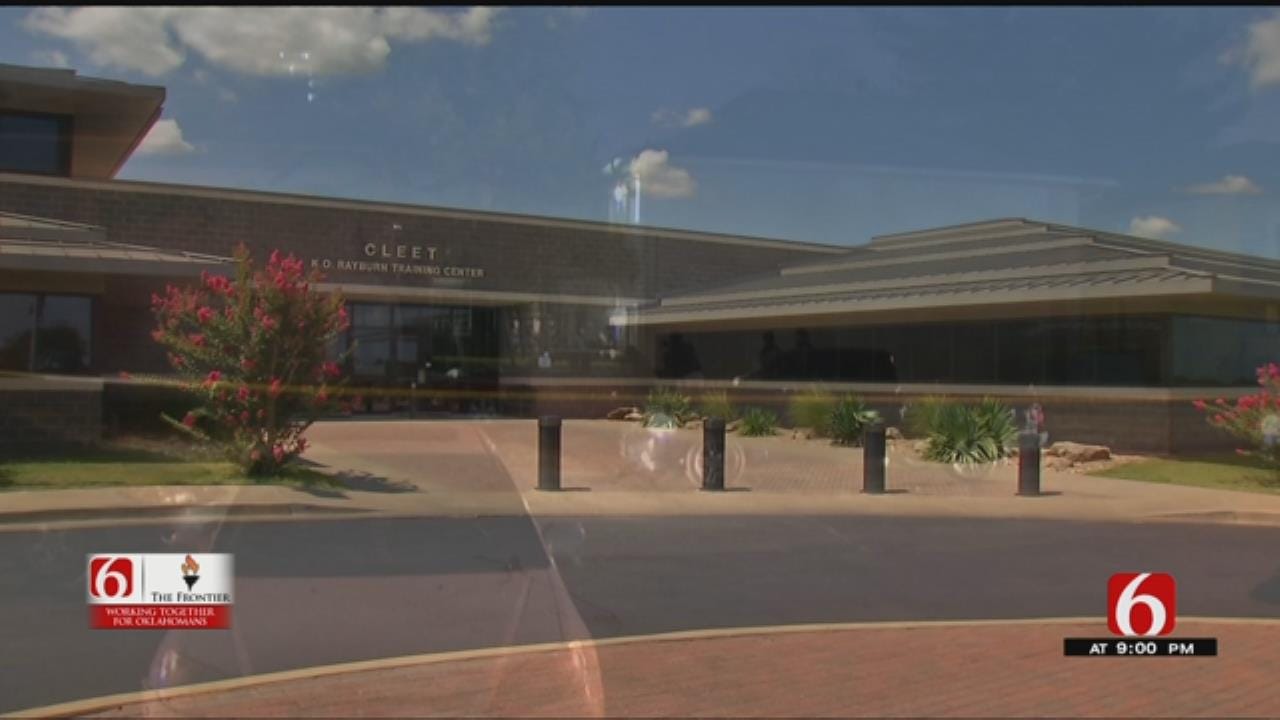Unguarded: State Agency Struggles To Regulate Security Guards
<p>A state agency is unable to keep track of the very industry it regulates, and it could be putting the safety of you and your family at risk.</p>Wednesday, August 17th 2016, 11:08 pm
A state agency is unable to keep track of the very industry it regulates, and it could be putting the safety of you and your family at risk.
That’s the finding of an exclusive News On 6 investigation with our partners at The Frontier.
The Council on Law Enforcement Education and Training, or CLEET, handles the licensing and regulation of all police officers and security guards in Oklahoma.
The problem: CLEET is struggling to keep track of the more than 8,000 security guards it regulates.
The result: criminals are allowed to have guns and hold positions of authority, made worse when these security guards are involved in life and death decisions, like Monroe Bird.
The Frontier: A security guard’s bullet ended Monroe Bird’s life. Here’s the rest of the story.
Life has changed for Zondra Magness and her family - daily reminders of her son keep the memories from fading away.
Magness said, "My first Mother's Day, my first birthday, his first birthday,"
"They'll never know who he is. I'll just have to speak of his memory, show them pictures, but they'll never get to meet their uncle," said Bird’s sister, Kiera Bird.
Eighteen months ago, security guard Ricky Stone shot Monroe Bird in the back, paralyzing him.
The district attorney didn't pursue charges against Stone, believing he acted appropriately - even after the DA said he was found in possession of marijuana and had it in his system at the time of the shooting.
Three months later, Monroe died.
"Losing someone from a person that, you know, who felt like they were a policeman and really wasn't. And nothing's really ever been done about it," Magness said.
At the CLEET headquarters in Ada, are boxes of records for the 20,000-plus police officers and security guards CLEET license and regulates.
With an application review staff of just four, and more than 20 new applications a day, CLEET director Steve Emmons said his hands are full.
The Frontier: State often in dark while armed security guards commit crimes
"It's very, very difficult. And the fact is that it's an ongoing basis that we’re working on multiple cases at any one time," Emmons said. "My staff is working at its maximum level."
CLEET also investigates complaints, and, if needed, suspends or revokes a license if the security guard breaks the rules. Right now, there is just one person to investigate all cases.
"That has been a problem for CLEET for probably it's entire existence," Emmons said.
That's because CLEET requires the courts to report any security guard that has a disqualifying conviction; CLEET also requires the security guard to self-report, but, as you might imagine, not all follow that rule.
Emmons said, "You're always going to have those few, and those are the ones you really get concerned with."
Digging by The Frontier shows some security guards were convicted of assault, battery, reckless conduct with a firearm, and did not self-report.
In the past two years, more than 100 security guards had disciplinary actions filed against them.
In some cases, it took CLEET months after a conviction before finally revoking a guard’s license - meaning security guards, some armed, continue to work.
Since CLEET moved to its new offices more than a decade ago, many of the license and documents are still in boxes. And for the very few CLEET employees, finding a specific document can be an uphill battle.
"If something happens out there with a private security guard, how are we going to find out," Emmons said.
Our investigation found, on average, it took CLEET a year to revoke the licenses of security guards who failed their background checks - meaning someone could complete the training courses and be illegally working for months before CLEET finds out.
Emmons said, "It's a challenge for us to be able to look, to do a thorough job on all of them."
In fact, a security guard who had a license revoked in 2010 might be able to get another license from CLEET because CLEET might not be able to even find the records.
"And no one probably even knows anything about them past 2013. That is a very scary thought," said the attorney for the Bird family, Damario Solomon-Simons.
For Magness and the rest of Bird's family, they believe more training, a required drug test and a bigger budget at CLEET could have saved his life.
"And a life was lost as a result of that. And that's what's unbelievable," Kiera Bird said.
State lawmakers have tried to introduce a bill in the last year that would increase educational and training requirements for security guards and require on-going drug testing. The bill never made it to committee.
Our partners at The Frontier gathered data from disciplinary actions against security guards from paper records spanning roughly a two-year period: April 2014 through May 2016. CLEET said that’s as far back as its records are digitized. The data also includes records of about 40 guards who were disciplined in 2004 and 2005. They included those years because they were the only boxes clearly labeled.
More Like This
August 17th, 2016
January 2nd, 2025
September 29th, 2024
Top Headlines
April 9th, 2025
April 9th, 2025
April 9th, 2025













